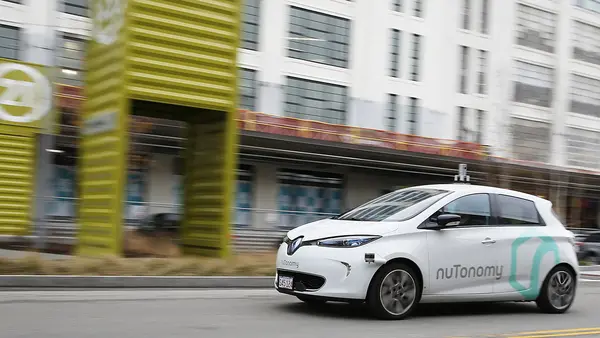The Tech-Enabled Energy Future
Transition by Design

A new wave of energy innovation is remaking the transportation, electricity, and manufacturing sectors. This so-called fourth industrial revolution is already creating great uncertainty about the future energy landscape, lessening common interests between oil-producing nations and the world’s largest economies.
March 8, 2019

- Report
Overview
Energy innovation is a vital U.S. national interest. The current rapid pace of digital innovation in energy—in particular, advancements in on-demand travel services, self-driving vehicles, big data-assisted logistics, newly automated and decentralized electricity systems, and three-dimensional (3-D) printing—is remaking the transportation, electricity, and manufacturing sectors. This so-called fourth industrial revolution could sharply reduce oil use, lessen the influence of geopolitically problematic oil-producing nations, and promote electricity system resiliency to severe weather. Leading in energy innovation contributes to U.S. global competitiveness—not only in spurring new markets, industries, and companies, but also in producing more cost-effective supply chains, boosting manufacturing productivity, reducing the economy’s energy intensity, and lowering the costs of addressing climate change.
However, volatility in U.S. public research and development (R&D) spending, as well as fluctuating government incentives for advancement of products like electric and self-driving vehicles, solar energy, and 3-D printing, has contributed to uncertainty about the scale and timing for a transition to new technologies. This high unpredictability is creating difficulties for oil-exporting countries like Russia, Saudi Arabia, and Venezuela and has lessened their common interests with industrialized nations like the United States.
More on:
As these technologies proliferate, the U.S. government—at federal, state, and local levels—needs to intervene and steer markets to avoid unintended consequences and prevent suboptimal outcomes. Otherwise, the potential of these technologies to reduce oil use, improve energy infrastructure resilience, and enhance U.S. competitiveness could go unrealized, or even contribute to a worsening of ill-effects such as congestion and emissions.
Sound public policy is needed to guide emerging technologies to benefit society. As companies craft strategies to unleash the power of sensors, big data, artificial intelligence, the Internet of Things, automation, and smart devices in the energy and transportation sectors, policymakers need to consider how to promote practices that harness these technologies in a way that optimizes a geopolitically and environmentally beneficial transition. Regulatory policies that ensure that digital energy innovation enhances national goals for security and environmental protections, instead of worsening current problems, will be important. How the United States deals with these issues could determine its future leadership in global technology.
More on:
 Online Store
Online Store